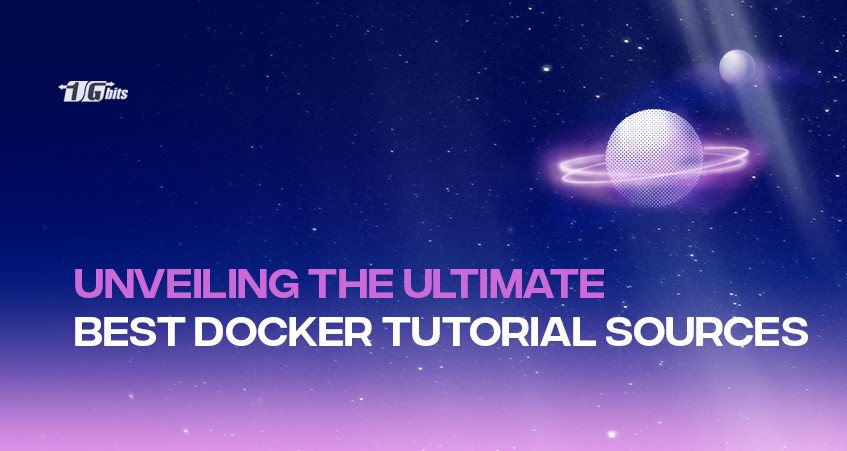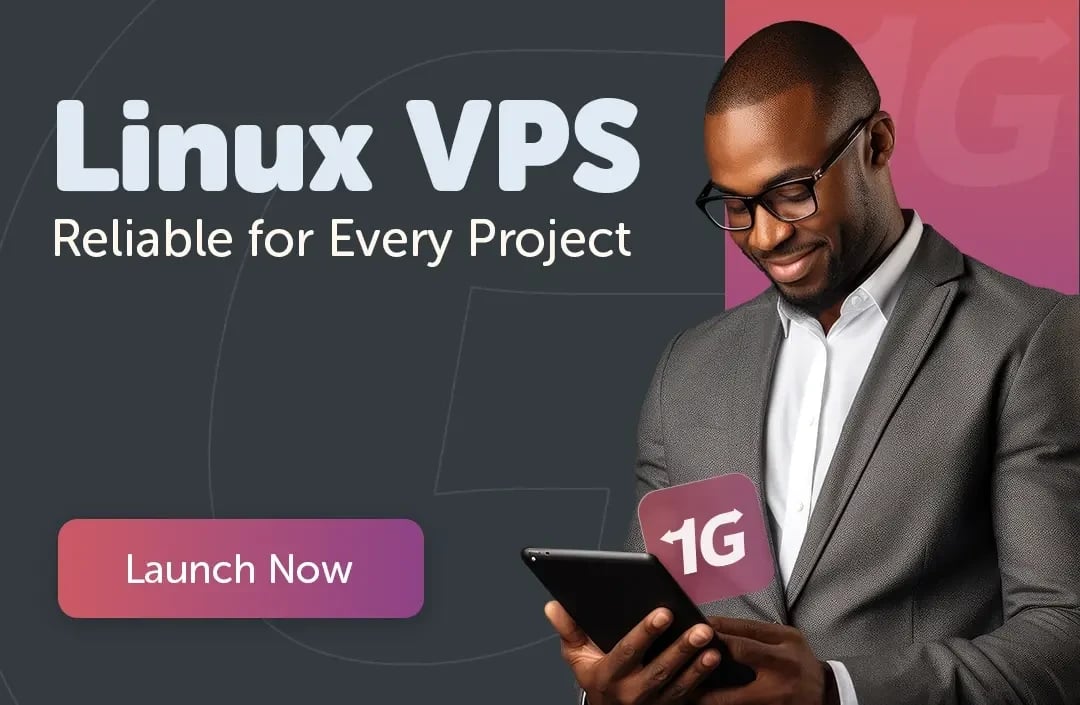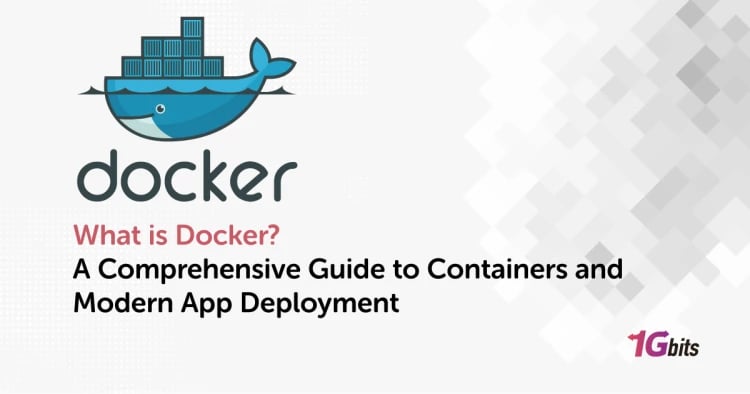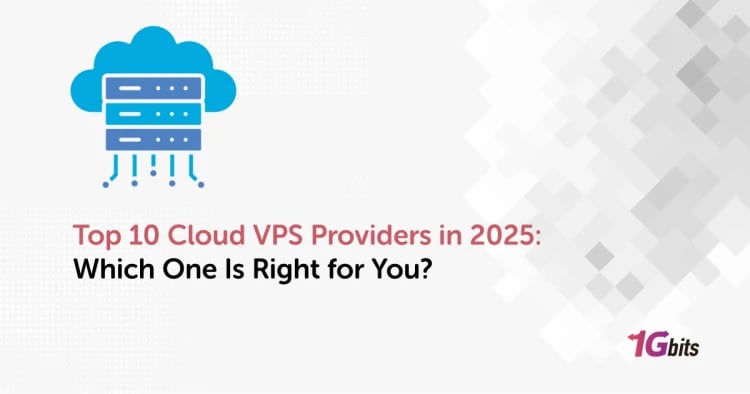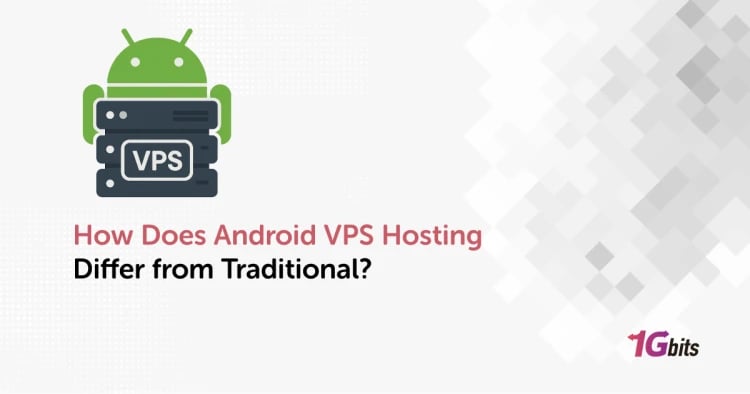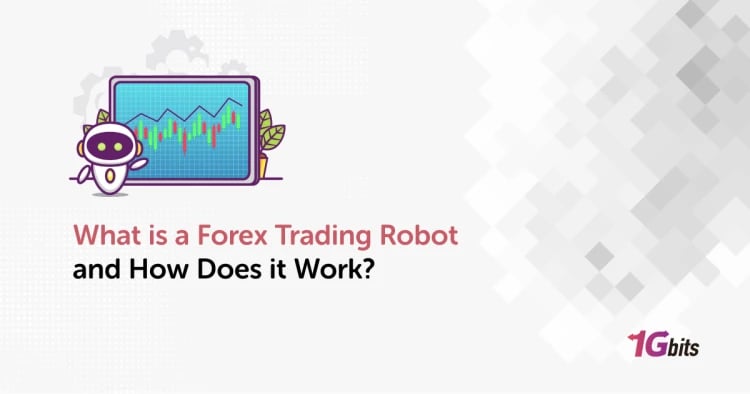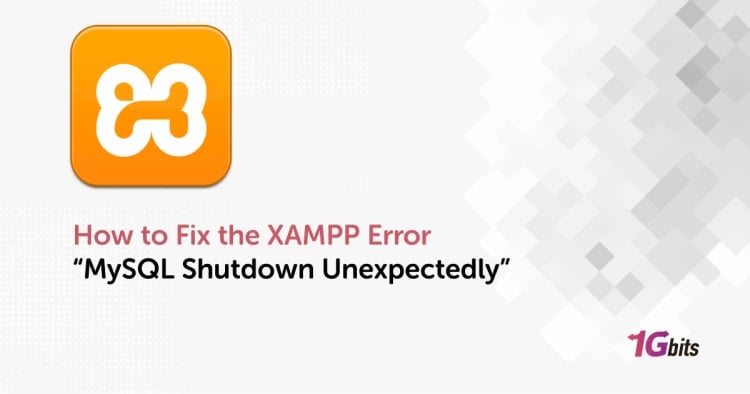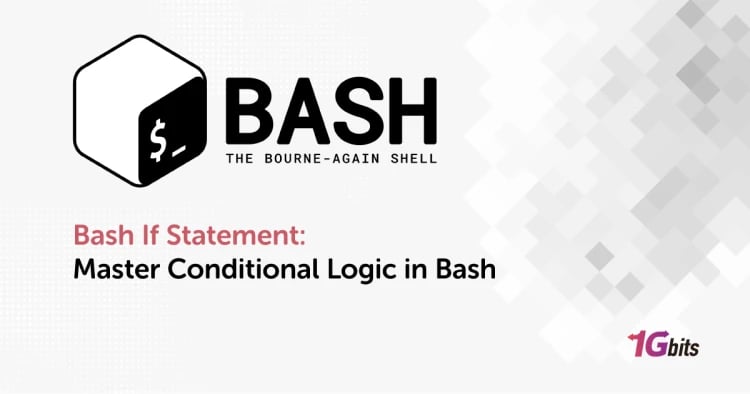Looking to set sail into the world of containerization? Wondering where to find the best Docker tutorial sources? Whether you're a coding novice diving into the Docker tutorial for beginners or a seasoned developer seeking a quick-use guide to Docker, there's a treasure trove of resources waiting to be discovered.
From the best Docker tools to the most comprehensive beginner Docker tutorials, a vast expanse of knowledge awaits. Picture a map leading you to the best Docker tutorial sources—like a compass guiding your journey through Docker best tutorial jungles. Here, you'll uncover the Docker tutorial for beginners c#, a quick guide to Docker to fast-track your learning, and even Docker tutorial 101 to lay the groundwork for your expertise.
Have you set your sights on the best Docker books or YouTube Docker tutorials? Fear not! These resources are akin to hidden gems waiting to be unearthed. Embark on this Docker tutorial expedition and immerse yourself in a wealth of knowledge—where Docker tutorial beginners seaml.
What is Docker?
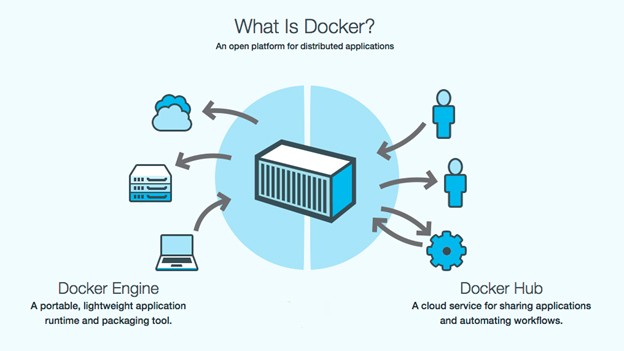
Docker often hailed as a transformative technology in modern software development, is essentially a platform designed to simplify the process of building, managing, and deploying applications within containers. But what exactly are containers, and how does Docker fit into this landscape?
Imagine containers as self-sufficient packages that encapsulate everything an application needs to run smoothly: code, runtime, system tools, libraries, and settings—all neatly bundled together. Docker, among the best Docker tutorial sources available, acts as an orchestrator, making the creation and management of these containers a breeze.
Picture it as a versatile toolkit, offering the best Docker tools to construct these containers. It allows developers to package their applications in a consistent environment, irrespective of the underlying infrastructure. These containers, portable and scalable, can seamlessly move between development, testing, and production environments.
Think of the best Docker tutorial for beginners as a gateway into this world of containerization. It simplifies the complexities of deployment and dependency management, empowering developers to focus on crafting efficient, innovative applications. With Docker, gone are the days of "it works on my machine" scenarios, as these containers ensure consistency across various systems.
The magic of Docker lies in its ability to streamline workflows, enhance collaboration, and expedite the deployment process. Within the realm of the best Docker tutorial sources, one can delve into the intricacies of Docker-tutorial intricacies, from a quick Docker tutorial for rapid immersion to a comprehensive Docker tutorial 101 for a foundational understanding.
In essence, Docker revolutionizes software development by providing a standardized, efficient method to package, distribute, and run applications—making it an indispensable tool in the arsenal of every modern developer.
To know how to install docker on Ubuntu, you can read the article How to install docker on Ubuntu.
Docker vs Kubernetes
Understanding Docker versus Kubernetes is key in navigating the world of containerization and orchestration. Here's a breakdown of these technologies:
Section 1: Docker Overview
Docker, one of the best Docker tutorial sources around, is primarily a platform that enables developers to create, deploy, and manage applications within containers. It focuses on packaging applications and their dependencies in containers, ensuring consistency across different environments. Docker provides an intuitive interface and tools, making it an excellent choice for containerizing applications.
Section 2: Kubernetes Overview
On the other hand, Kubernetes, also covered extensively in the best Docker tutorial sources, is an open-source orchestration platform for containerized applications. It's designed to automate the deployment, scaling, and management of these containers. Kubernetes excels in handling complex containerized applications across multiple nodes or clusters, providing advanced features for scalability, resilience, and load balancing.
Section 3: Key Differences
While Docker focuses on containerization, Kubernetes operates as an orchestrator for managing container clusters. Docker helps create and manage containers, whereas Kubernetes manages these containers at scale, handling tasks like deployment, scaling, and maintaining the desired state of applications. The best Docker tutorial for beginners often explains this distinction clearly, outlining the roles of each technology.
Section 4: Complementary Technologies
Interestingly, Docker and Kubernetes are not direct competitors but rather complementary technologies. Docker can be used as the container runtime within Kubernetes, leveraging its capabilities in container creation and management. Understanding this synergy is crucial, and the best Docker tutorial sources usually delve into this relationship, illustrating how Docker containers fit into the Kubernetes ecosystem.
Section 5: Use Cases
Both Docker and Kubernetes cater to different needs. Docker is excellent for packaging applications and simplifying development workflows. Kubernetes shines in managing large-scale, multi-container, and distributed applications. Best Docker tutorial sources often provide real-world use cases to illustrate when to use each technology based on project requirements, scalability needs, and infrastructure complexity.
Section 6: Learning and Implementation
To grasp these technologies effectively, leveraging the best Docker tutorial for beginners is recommended to understand container basics. Then, diving into Kubernetes tutorials that elucidate orchestration concepts alongside Docker integration can provide a comprehensive understanding. Best Docker tutorial sources frequently recommend hands-on practices, allowing learners to implement and comprehend these technologies effectively.
By exploring these technologies through the lens of the best Docker tutorial sources, one can navigate their distinctive features, understand their roles in modern software development, and harness their combined power for efficient application deployment and management.
Choosing the Right Docker Course

When selecting a Docker course, there are several key criteria to consider. Let's break it down step by step:
Course Content
The best Docker tutorial sources cover a range of content, from beginner to advanced levels. Look for courses that align with your proficiency—whether you're starting from scratch or seeking more advanced insights. A great Docker course should provide a structured approach, encompassing container basics, Dockerfile creation, container orchestration, and practical use cases. The best Docker tutorial for beginners often starts with foundational concepts before delving into more complex topics.
Instructor Expertise
The credibility and expertise of the instructor play a pivotal role in your learning journey. The best Docker tutorial sources are often led by experienced professionals with a strong background in containerization and practical application of Docker in real-world scenarios. Look for courses where instructors have a solid track record, possibly backed by industry experience or recognized certifications.
Hands-on Experience
Practical application is key in mastering Docker. The best Docker tutorial sources emphasize hands-on experience, providing exercises, labs, or projects for learners to apply theoretical knowledge. Seek courses that offer a balance between theory and practical implementation, allowing you to build and manage Docker containers, troubleshoot issues, and understand best practices firsthand.
Community and Support
A robust community and support system can significantly enhance the learning experience. The best Docker tutorial sources often provide forums, discussion groups, or dedicated platforms where learners can engage, ask questions, and collaborate with peers. Consider courses that offer community support, as this can be invaluable in resolving queries and sharing insights.
Updates and Relevance
Containerization technologies like Docker evolve rapidly. Opt for courses that are regularly updated to reflect the latest Docker features, best practices, and industry trends. The best Docker tutorial for beginners should equip you not just with foundational knowledge but also with insights into current trends and emerging practices.
Reviews and Recommendations
Before enrolling, explore reviews, testimonials, and recommendations from past learners. The best Docker tutorial sources often garner positive feedback for their clarity, depth of content, and effectiveness in imparting knowledge. Platforms with user reviews and ratings can serve as a valuable guide in selecting a course aligned with your learning objectives.
By considering these criteria and leveraging the insights from the best Docker tutorial sources, you can make an informed decision in selecting a Docker course that aligns with your skill level, learning style, and professional aspirations.
1. Docker for the Absolute Beginner — Hands-On — DevOps (Udemy)
"Docker for the Absolute Beginner - Hands-On - DevOps" on Udemy is a comprehensive course designed to introduce Docker to beginners. It provides simplified lectures aimed at helping absolute beginners understand Docker's concepts and practical applications.
Features and Benefits
Simplified Learning Approach
Tailored for absolute beginners, the course simplifies Docker concepts.
Comprehensive Content
It covers fundamental Docker concepts such as container basics, Dockerfile creation, container management, and possibly orchestration basics.
Practical Hands-On Experience
- The course emphasizes hands-on learning, providing practical exercises and labs.
- Clear Instruction and Real-World Application: Instructors likely provide clear explanations and real-world use cases, helping learners understand Docker's practical application.
Structured Curriculum
The course follows a structured path, ensuring a logical progression from foundational to advanced concepts.
Positive Feedback
Often praised for its effectiveness and clarity, this course likely garners positive reviews and recommendations from learners.
This Udemy course stands out for its beginner-friendly approach, hands-on learning, and comprehensive coverage of Docker fundamentals, making it a highly recommended resource among the best Docker tutorial sources.
To view more information, click view Docker for the Absolute Beginner — Hands-On — DevOps (Udemy).
2. Getting Started with Docker (PluralSight)
Getting Started with Docker" on Pluralsight is a comprehensive course offering fundamental knowledge about Docker and containers. Aimed at developers and operations professionals, the course covers both theoretical concepts and practical skills required to navigate Docker swiftly and effectively.
Features and Benefits
Theoretical and Practical Skills
This course equips learners with both theoretical understanding and practical skills to operate Docker efficiently.
Container Management Techniques
Students learn various Docker tools, container orchestration, and efficient container.
Image Handling and Container Orchestration
- The course delves into handling images, container orchestration techniques, and Docker commands.
- Application Packaging and Deployment: Learners explore Docker's application packaging capabilities and its use in deploying applications.
Collaborative Learning Experience
Collaborative courses, like the Play by Play Docker course, offer insights from multiple experts, enriching the learning experience.
Comprehensive Docker Education: Pluralsight's Docker tutorials cover diverse deployment options and strategies for building scalable Docker solutions.
This Pluralsight course stands out for providing a blend of theoretical understanding and hands-on skills in Docker, making it a valuable resource among the best Docker tutorial sources.
To view more information, click Getting Started with Docker (PluralSight).
3. Docker Essential Training: 1 Installation and Configuration (LinkedIn Learning)
Docker Essential Training: 1 Installation and Configuration on LinkedIn Learning offers a comprehensive guide focusing on installing and configuring Docker across various platforms, including Mac, Windows, Linux, and cloud-based environments like Amazon Web Services.
Features and Benefits
Platform Diversity
This course covers Docker setup on Mac, Windows, Linux, and cloud-based environments, providing versatility in installation.
Hands-On Learning
Learners gain practical skills through hands-on installation and configuration exercises.
Professional Guidance
Software engineer Carlos Nunez offers comprehensive guidance, covering essential aspects of Docker setup.
Cloud Integration
The course emphasizes configuring Docker in cloud environments like Amazon Web Services (AWS).
Learning Flexibility
LinkedIn Learning's Docker tutorial provides self-paced learning, allowing students to learn at their convenience.
Comprehensive Documentation
For supplemental learning, Docker's official documentation offers in-depth information and guidelines.
This LinkedIn Learning course stands out for its diverse platform coverage, hands-on learning experience, and guidance from industry experts, making it a valuable resource among the best Docker tutorial sources.
To view more information, click Docker Essential Training: 1 Installation and Configuration (LinkedIn Learning).
4. Docker for Developers (Educative.io)
Docker for Developers" on Educative.io is a specialized course focusing on enabling developers to leverage Docker efficiently. It aims to teach developers the utilization of Docker for streamlined software development processes.
Features and Benefits
DevOps Enabler
Educative.io's Docker course enables developers to adopt DevOps practices efficiently.
Dependency Resolution
It resolves dependency conflicts, aiding developers in managing software dependencies effectively.
Scalability
Helps developers scale up applications seamlessly using Docker containers.
Upgrades Facilitation
Streamlines the process of upgrading applications by leveraging Docker's functionalities.
Real-World Application
Illustrates how international commerce already utilizes Docker containers, giving learners practical insights.
Interactive Learning Experience
Provides an interactive learning environment, making the course engaging and effective for developers.
This Educative.io course stands out for its focus on developers' needs, offering practical insights into Docker's application in software development, making it a valuable resource among Docker tutorial sources.
To view more information, click Docker for Developers (Educative.io).
5. Docker Crash Course for Busy DevOps and Developers (Udemy)
The "Docker Crash Course for Busy DevOps and Developers" on Udemy is designed to cover the foundational aspects of Docker software. This course aims to provide a fast-paced learning experience specifically tailored for DevOps professionals and developers.
Features and Benefits
Foundational Understanding
Offers a comprehensive understanding of Docker's fundamentals for both DevOps and developers.
Practical Learning
Emphasizes practical implementation, enabling learners to grasp Docker's core concepts through hands-on exercises.
Modern Application Development
Teaches everything necessary for developing and deploying modern applications leveraging Docker.
Time-Efficient Learning
Being a crash course, it condenses essential Docker knowledge into a shorter, intensive learning experience.
DevOps Integration
Tailored content to suit the requirements of DevOps professionals, facilitating seamless integration of Docker into DevOps practices.
Expert Instruction
Led by experienced instructors, providing guidance and expertise throughout the course.
This Udemy course stands out for its condensed yet comprehensive approach to Docker education, targeting both DevOps and developers, making it a valuable resource among Docker tutorial sources.
To view more information, click Docker Crash Course for Busy DevOps and Developers (Udemy).
6. Learning Docker (LinkedIn Learning)
.jpg)
Learning Docker" on LinkedIn Learning offers an introduction to Docker's core concepts, including containers, Dockerfiles, and their practical implementations. This course is led by software engineer Carlos Nunez and provides a foundational understanding of Docker's fundamental aspects.
For those interested in understanding the differences between Docker and other containerization technologies, it's worth exploring the comparison between Docker and LXC. This will provide you with a clearer view of their distinctions and use cases, further enhancing your knowledge as you progress through Docker tutorials.
Features and Benefits
Fundamentals Coverage
Provides a comprehensive understanding of Docker basics, including containers and Dockerfiles.
Skill Progression
Facilitates learning from fundamental to advanced Docker usage [2 - Docker Online Training Courses].
Flexibility
Offers a flexible learning schedule on LinkedIn Learning's platform [2 - Docker Online Training Courses].
Real-world Implementation
Focuses on practical applications, enabling learners to comprehend Docker's real-world usage.
Complementary Tool Training
Offers additional learning on Docker Compose, enriching the Docker learning experience.
Platform-specific Training
Explores Docker's benefits for Windows app development and deployment.
LinkedIn Learning's "Learning Docker" stands out for its comprehensive coverage of Docker's essentials and supplementary training on related tools, catering to learners at varying proficiency levels.
To view more information, click Learning Docker (LinkedIn Learning).
7. Docker Deep Dive (PluralSight)
Docker Deep Dive" on Pluralsight is a comprehensive course covering essential aspects of Docker and containerization. This course serves as an entry point into the world of Docker, offering foundational knowledge to delve into containerization technologies like Kubernetes. It provides a solid groundwork for understanding Docker's functionalities and how to leverage containers effectively.
For those exploring container runtimes, it's helpful to understand the key differences between Docker and other technologies. To expand your knowledge on this topic, be sure to check out our detailed comparison of Docker vs. Containerd, which explores the strengths and use cases of both containerization tools.
Features and Benefits
Foundational Understanding
Equips learners with fundamental knowledge about Docker and its.
Gateway to Advanced Learning
Acts as a stepping stone for more advanced containerization technologies like Kubernetes.
Practical Learning: Offers insights into practical implementations and real-world scenarios involving Docker.
In-depth Coverage
Explores Docker versions, installation, management, and usage comprehensively.
Scalability Education
Guides on building scalable Docker solutions for various deployment options.
Recognition as a Top Course
Recognized among the best Docker courses available online.
"Docker Deep Dive" on Pluralsight is a foundational course, serving as a launchpad for individuals seeking to comprehend Docker and its practical applications while also laying the groundwork for more advanced containerization concepts.
To view more information, click Docker Deep Dive (PluralSight).
8. Docker in Depth (Cloud Academy)
"Docker in Depth" by Cloud Academy is a comprehensive learning path that covers Docker's nuances from individual container handling to deploying applications in a clustered environment . It provides a structured approach for learners, starting with foundational Docker concepts and progressively advancing to multi-container applications and cluster deployment . The course offers practical insights into Docker's various aspects, ensuring a thorough understanding of its usage across different environments.
For those looking to explore alternative containerization tools, it's worth considering the differences between Docker and Podman. If you're curious about how these two compare, check out our detailed guide on Docker vs Podman, which covers their key distinctions in terms of functionality, security, and performance.
Features and Advantages
Structured Learning Path
Offers a step-by-step learning journey from basic container operations to cluster deployments.
Comprehensive Coverage
Covers individual containers, multi-container applications, and cluster deployment extensively.
Practical Implementation
Provides hands-on exercises to reinforce theoretical knowledge with practical experience.
Deployment Proficiency
Equips learners with the skills needed to effectively deploy applications using Docker in various scenarios.
Real-world Relevance
Focuses on real-world applications, ensuring relevance in professional settings.
Recognized Course
Acknowledged as a valuable resource for Docker education and skill enhancement.
"Docker in Depth" on Cloud Academy is an ideal learning path for individuals aiming to gain comprehensive knowledge and practical skills in Docker containerization.
To view more information, click Docker in Depth (Cloud Academy).
9. Docker for Java Developers
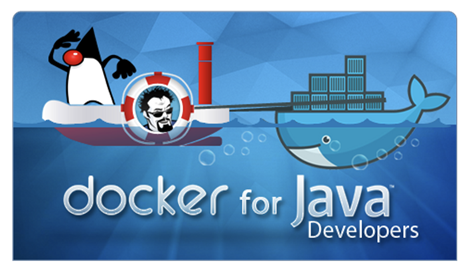
"Docker for Java Developers" is a tailored set of tutorials and resources focused on integrating Docker into Java development workflows. These tutorials provide Java developers with comprehensive guidance on leveraging Docker containers for Java applications. They cover a wide range of topics, including Docker basics, containerizing Java applications, debugging Java in containers, and optimizing containerized Java development.
For developers looking to take their container management skills to the next level, exploring the differences between Docker and Kubernetes is a must. To gain a deeper understanding of how these two tools compare, check out our detailed breakdown on Docker vs Kubernetes, which highlights their unique strengths and use cases in modern DevOps practices.
Features and Benefits
Java-Centric Tutorials
Tailored specifically for Java developers, providing relevant and focused Docker integration guidance.
Comprehensive Coverage
Offers a wide spectrum of Docker-related topics, from basic concepts to advanced debugging and optimization for Java.
Hands-on Learning
Provides practical insights and hands-on exercises for containerizing Java applications.
Debugging and Optimization
Focuses on debugging and optimizing Java applications running within Docker containers.
Best Practices
Offers best practices for containerizing Java web applications to facilitate efficient development and deployment.
Specialized Guidance
Tailors Docker usage specifically for Java developers, ensuring relevance and practicality in the Java ecosystem.
"Docker for Java Developers" is an invaluable resource, bridging Docker's capabilities with the Java development landscape, enriching Java applications' deployment and management processes.
To view more information, click Docker for Java Developers.
10. Docker and Kubernetes: The Complete Guide (Udemy)
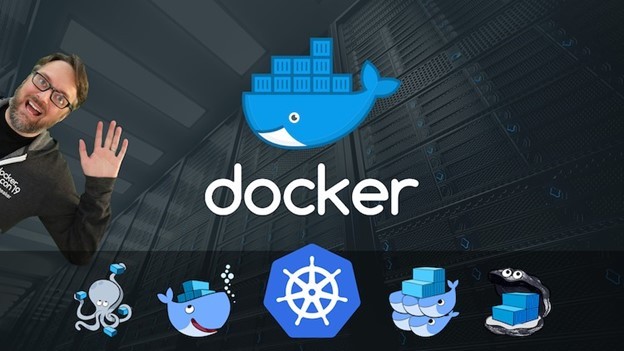
The course "Docker and Kubernetes: The Complete Guide" on Udemy is a comprehensive learning resource focusing on deploying various web applications using Docker and Kubernetes
Advantages and features include:
Comprehensive Learning: Provides in-depth knowledge from basic to advanced levels in Docker and Kubernetes.
Practical Application
Teaches how to deploy any web application using Docker and Kubernetes.
Newest DevOps Tech
Focuses on the latest technologies essential in the DevOps world.
Build, Test, Deploy
Covers building, testing, and deploying Docker applications with Kubernetes in production-style development workflows.
Real-world Scenarios
Demonstrates practical scenarios for implementing Docker and Kubernetes in actual projects.
Hands-on Experience
Offers hands-on exercises and projects to reinforce learning.
The course not only imparts theoretical knowledge but also provides practical skills necessary for using these technologies effectively in real-world scenarios. It covers the fundamentals and advanced aspects of Docker and Kubernetes, making it a valuable resource for DevOps professionals and developers seeking proficiency in containerization and orchestration.
To view more information, click Docker and Kubernetes: The Complete Guide (Udemy).
11. Docker & Kubernetes: The Practical Guide (Udemy)
Docker & Kubernetes: The Practical Guide on Udemy offers an extensive course focused on the practical aspects of Docker and Kubernetes. Its advantages and features encompass:
Practical Learning Approach
Emphasizes hands-on practice for understanding Docker and Kubernetes fundamentals.
Ground-up Learning
Teaches these crucial technologies from basics to advanced levels.
Focused on Core Features
Concentrates on understanding the core functionalities of Docker and Kubernetes through practical application.
Diagrams and Practical Examples
Provides visual aids and practical instances for enhanced comprehension of Docker and Kubernetes.
Application Deployment Skills
Equips learners with the ability to deploy and manage applications effectively on Kubernetes.
Efficient Infrastructure Building
Focuses on developing efficient DevOps infrastructures using Docker and Kubernetes.
This course stands out for its hands-on learning approach, enabling students to not only grasp the theoretical concepts but also gain practical skills essential for real-world implementation in DevOps and software development.
To view more information, click Docker & Kubernetes: The Practical Guide (Udemy).
12. Docker Mastery: with Kubernetes +Swarm from a Docker Captain
"Docker Mastery: with Kubernetes + Swarm from a Docker Captain" is an educational program led by an experienced Docker Captain, focusing on Docker, Kubernetes, and Swarm technologies . Its advantages and features encompass:
Expert Guidance
Led by an award-winning Docker Captain, ensuring top-tier instruction and insights.
Comprehensive Learning
Covers Docker, Kubernetes, and Swarm, offering a comprehensive understanding of containerization and orchestration.
Live Chat Support
Access to a live chat group for enhanced learning and quick query resolution.
Practical Application
Emphasizes practical exercises to reinforce theoretical knowledge.
Official Tools Mastery
Teaches the official Docker and Kubernetes tools for proficient usage.
Accelerated Learning
Provides a conducive environment to learn faster through expert guidance and community support.
This course stands out for its depth of content, expert guidance, and practical approach that equips learners with skills in Docker, Kubernetes, and Swarm technologies essential for modern software development and DevOps practices.
To view more information, click Docker Mastery: with Kubernetes +Swarm from a Docker Captain.
13. DevOps Tutorial: Complete Beginners Training - 5 in 1 Bundle
This bundle course aims to provide a comprehensive introduction to various DevOps tools and practices, catering specifically to beginners.
Advantages
Comprehensive Learning
Covers a range of DevOps tools in one course, offering a holistic understanding.
Multiple Tools
Incorporates multiple DevOps tools into a single course, offering exposure to various aspects of DevOps practices.
Beginner-Friendly
Tailored for beginners, providing a foundational understanding of DevOps concepts without assuming prior knowledge.
Practical Approach
Emphasizes hands-on exercises and practical applications to reinforce learning and skills development.
Flexibility
Allows learners to proceed at their own pace, accommodating diverse learning styles and schedules.
Affordability
Bundles multiple courses together, offering cost-effectiveness compared to purchasing individual courses.
Features
Introduction to DevOps
Provides a foundational understanding of DevOps, its principles, and its significance in modern software development.
Docker Fundamentals
Offers in-depth learning about Docker, containerization, Dockerfiles, and container management.
Continuous Integration/Continuous Deployment (CI/CD)
Covers CI/CD pipelines, tools, and strategies for efficient software delivery.
Configuration Management
Explores tools and practices for managing configurations effectively within a DevOps environment.
Monitoring and Logging
Introduces monitoring and logging tools essential for DevOps operations and troubleshooting.
Automation Tools
Addresses automation tools used in DevOps practices for enhancing efficiency and reducing manual efforts.
The "DevOps Tutorial: Complete Beginners Training - 5 in 1 Bundle" is a comprehensive starting point for beginners aiming to grasp various DevOps tools and practices effectively.
To view more information, click DevOps Tutorial: Complete Beginners Training - 5 in 1 Bundle
14. The Docker for DevOps Course: From Development to Production
The "Docker for DevOps Course: From Development to Production" focuses on leveraging Docker to facilitate the development and deployment of web applications.
Advantages
Comprehensive Learning
Guides learners through the entire process of building and deploying web applications using Docker.
Automated Deployment
Emphasizes automated deployment methods to streamline the process.
In-depth Content
Covers a wide range of topics related to Docker and DevOps, ensuring a thorough understanding.
Hands-on Experience
Provides practical insights and examples with over 100 lectures for effective learning
Containerization Benefits:
Demonstrates the advantages of containerization for web applications.
Career Relevance
Offers knowledge and skills relevant to DevOps careers and post-certification paths.
Features
Development Workflow
Covers Docker's role in the development workflow, enabling efficient development practices.
Deployment Automation
Focuses on automated deployment strategies using Docker containers.
Containerization Basics
Teaches containerization concepts, Dockerfile creation, and container management.
Practical Implementations:
Offers practical examples and real-world scenarios for application deployment.
CI/CD Integration
Discuss integration of Docker into continuous integration/continuous deployment pipelines.
Learning for Beginners
Tailored for beginners, ensuring a gradual learning curve.
The "Docker for DevOps Course: From Development to Production" offers a practical, comprehensive understanding of Docker's role in the development and deployment of web applications.
To view more information, click The Docker for DevOps Course: From Development to Production.
15. Best Free University-Level Course for Beginners (University of Helsinki)
.png)
The University of Helsinki's free DevOps with Docker course is renowned for its comprehensive introduction to containerization. Its features include:
Extensive Content
Covers containers, Docker, docker-compose, web services, reverse proxies, databases, and more.
Self-Paced Learning
Ideal for beginners, offering flexibility in learning pace and schedule.
Instructor Expertise
Taught by Jami Kousa from the University of Helsinki, ensuring quality instruction from an expert.
Practical Approach
Focuses on hands-on exercises and real-world applications, aiding better understanding.
Free Access
Available without cost, making it accessible to anyone eager to learn Docker and containerization.
University-Level Instruction
Offers quality education from a reputable university, ensuring credibility and reliability in the course content.
This course stands out among the best Docker tutorial sources due to its comprehensive content, self-paced structure, expert instruction, practical approach, free accessibility, and university-level quality, making it an excellent choice for beginners diving into Docker and containerization.
To view more information, click Best Free University-Level Course for Beginners (University of Helsinki).
16. Best Lab-Based Course for Beginners with Free Certificate (IBM)
IBM offers a comprehensive Docker tutorial for beginners, providing a hands-on learning experience with interactive labs and video demonstrations. This course is ideal for those new to Docker and seeking to gain a strong foundation in its concepts and practical applications.
Key Features
Interactive Labs
Hands-on practice with Docker commands and concepts through practical labs.
Video Demonstrations
Clear and concise video explanations of Docker concepts and procedures.
Self-paced Learning
Complete the course at your own pace, with no deadlines or instructor-led sessions.
Free Certificate
Upon successful completion of the course, you'll receive a free IBM digital certificate to showcase your skills.
Advantages:
Solid Foundation in Docker Concepts
Gain a thorough understanding of Docker's core concepts, including containers, images, registries, and orchestration.
Practical Hands-on Experience
Develop practical skills through interactive labs, allowing you to apply Docker commands and concepts in real-world scenarios.
Prepare for Docker Certifications
Enhance your preparation for Docker certifications by gaining hands-on experience and solidifying your understanding of key concepts.
Career Advancement
Enhance your employability and open up new career opportunities by mastering Docker and demonstrating your skills through the IBM certificate.
To view more information, click Best Lab-Based Course for Beginners with Free Certificate (IBM)
17. HANDS-ON DOCKER for JAVA Developers
"HANDS ON DOCKER for JAVA Developers" is a specialized course catering to Java developers aiming to master Docker for their Java applications. Distinguished among the best Docker tutorial sources, this course offers:
Practical Emphasis
It focuses on practical implementation, guiding learners to construct, deploy, and run Java apps via Docker.
Real-World Scenarios
With over 10 real-world use cases, learners grasp Docker's relevance and application in Java development.
Tailored for Java
Specifically designed for Java developers, it intricately covers Docker's integration within the Java ecosystem.
In-Depth Understanding
Provides comprehensive insights into how Docker optimally benefits Java-based project.
Highly Recommended
Recognized within the Docker community as one of the best Docker tutorial sources, particularly beneficial for Java developers.
Interactive Learning Experience
Through hands-on exercises, learners immediately apply Docker principles to Java projects, fostering an interactive learning journey.
This course offers an exceptional opportunity for Java developers to master Docker in the context of Java application development. Its practical approach, tailored content, and strong recommendations establish it as a leading resource among the best Docker tutorial sources available.
To view more information, click HANDS-ON DOCKER for JAVA Developers
Conclusion
While concluding the search for the best Docker tutorial sources, it's evident that several exceptional resources stand out in the realm of containerization education. Among the myriad options available, these stand as the best Docker tutorial sources due to their comprehensive coverage, clarity, and effectiveness in imparting Docker knowledge.
The best Docker tutorial sources offer comprehensive and structured content, making it easier for beginners to grasp fundamental concepts. These sources present a systematic approach to learning Docker, guiding users through the setup, containerization, networking, and orchestration aspects, ensuring a well-rounded understanding.
As you dive into Docker tutorials, it's crucial to familiarize yourself with essential Docker commands. For a quick and practical reference, be sure to check out our guide on Docker basic commands, which covers the fundamental operations you'll need as you navigate container management and deployment.
Moreover, the best Docker tutorial sources stand out for their practicality, providing hands-on exercises and real-world examples. This hands-on approach is invaluable in reinforcing theoretical knowledge, allowing learners to apply what they've learned in a practical setting.
Additionally, the best Docker tutorial sources prioritize accessibility, catering to learners of varying expertise levels. Whether you're a novice or an experienced developer, these sources offer content that is tailored to meet your specific learning needs, facilitating a smooth learning curve.
Furthermore, the best Docker tutorial sources often come with supplementary resources such as forums, communities, and support channels. These resources enable learners to engage with a community, seek help, share experiences, and deepen their understanding through discussions and collaboration.
In conclusion, the quest for the best Docker tutorial sources unveils a selection of top-notch educational materials that excel in clarity, depth, hands-on practice, accessibility, and community support. For those diving into the world of containerization, these best Docker tutorial sources serve as indispensable tools for mastering Docker's intricacies and unleashing its full potential in software. Additionally, understanding the nuances of server for Docker is crucial for efficient deployment, while opting for Docker VPS hosting can further enhance scalability, flexibility, and control in containerized environments.
If you're looking to expand your programming skills beyond Docker, learning Python is a natural next step. Python’s versatility makes it an excellent tool for automating Docker tasks and managing infrastructure. For high-quality learning resources, explore our guide on the best Python tutorial sources to get started on your Python programming journey.
